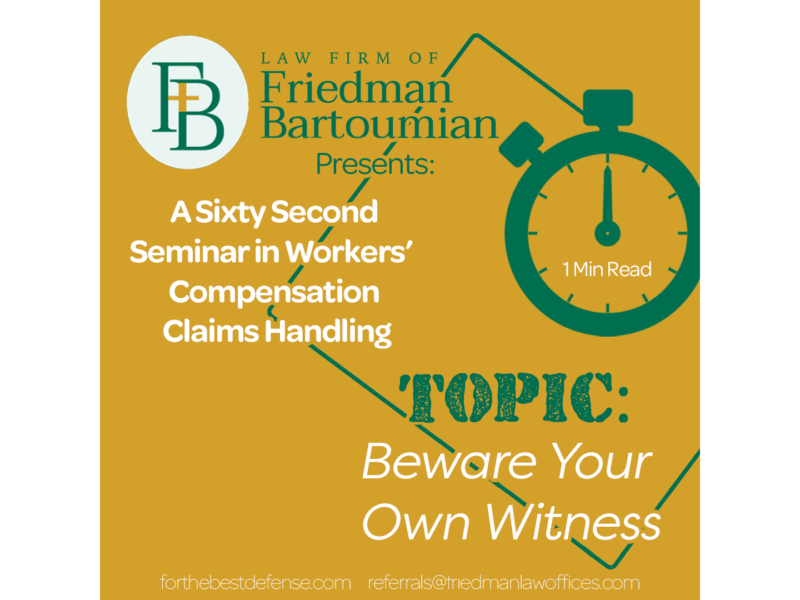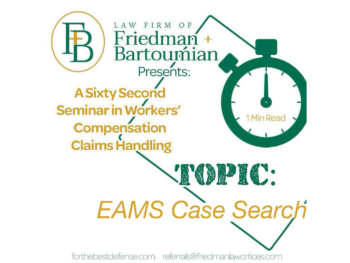Today’s blog discusses witness testimony at the Appeals Board, particularly testimony offered when compensability of an industrial injury is in dispute.
More frequently than one might anticipate, an employer is caught by surprise when their own witness completely changes their story on the witness stand. Employers naturally feel duped when this occurs and can’t understand the basis of the change from what the witness recounted on the day of injury. The change in story is typically attributed to the fact that the witness exaggerated what they saw at the time of injury, or the witness doesn’t want to testify against a co-worker who might be a friend outside of the workplace, or even a relative. Sometimes, the witness and the injured worker are members of the same labor Union, an affiliation where “brotherhood” is of paramount importance, and where Union bylaws may prohibit a member from presenting adverse testimony against a fellow member.
When an injury occurs, witnesses often cannot stop talking about the accident. They eagerly speak to anyone who will listen. Their comments are often used as a basis for denying a claim. However, months later these very same witnesses now tell a completely different story, or they claim to no longer remember the incident. Also, some flatly refuse to testify at the Appeals Board or simply fail to appear at the hearing despite having been served with a subpoena requiring them to do so.
In instances where the testimony of a previously friendly witness has made a 180-degree turn, the defense attorney should strongly consider making a request of the Judge that the witness be declared “hostile”, a procedural tactic that will allow counsel to subject the witness to a more rigorous line of questioning.
When a witness suffers a sudden onslaught of forgetfulness, the condition is sometimes innocent, and sometimes results from a threat (either straightforward or implied) warning them to keep quiet. Unfortunately, the Labor Code is a one-way street when it comes to witness intimidation. Under subparagraph (3) of Labor Code Section 132a, it is a misdemeanor for an employer to threaten an employee with discharge or to discriminate in any manner against an employee whose intentions to testify on behalf of an injured co-worker have been made known. Yet, the Labor Code is totally silent should an employer’s witness be threatened by the injured worker, or someone acting on their behalf or for their interests. Fear of retaliation is a strong, motivational factor to help cause a witness to “forget” what they saw.
The lesson to be learned here is that employers must beware their own witness.There are, however, some best practices an employer may implement for their protection. If the employer anticipates the need to call a non-cooperative individual to the stand at a Board proceeding, the employer should issue a subpoena to that witness. As to co-worker witnesses, it is highly recommended that written statements be taken from such workers immediately following an accident to create a record of the events witnessed. Again, this should be done immediately following the accident, when the witnesses are most likely to be willing to provide unbiased information. By subpoenaing and “statementizing” witnesses, the employer will have a level of protection should any witness fail to show up at court, or change their story, or conveniently forget an event in its entirety.



 Home Health Care Attendant: A Sixty-Second Seminar in Workers’ Compensation Claims Handling
Home Health Care Attendant: A Sixty-Second Seminar in Workers’ Compensation Claims Handling
Leave a Reply